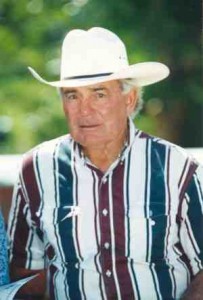Essay by Deric Pamp
Politics – November 2006 – Colorado Central Magazine
THE EVIDENCE IS MOUNTING that America’s invasion of Iraq was a lousy idea from the start, badly planned and badly executed on a strategic level, and has only gotten worse. More Americans are calling for a halt to this ongoing disaster. The Administration refers to this as the “cut and run” strategy and suggests that dissent to government policy dishonors the brave kids who have died over there.
It is now common to hear that anyone who objects to America’s continued presence in Iraq is giving aid and comfort to the enemy. The Administration encourages this divisive talk when they say that we dissenters are “confused.” Political discourse these days is like a food fight with rotten eggs and rocks the size of baseballs. It’s business as usual and generally I don’t much care what they say, since they have no credibility whatever after four years of talking pure drivel.
However, the Administration and its apologists go on to say that protests against the war at home are demoralizing to our troops abroad — that supporting the troops requires us not to voice our disagreement with the policy of staying the course beyond all reason and no matter the cost. The rational response is that there’s an election going on, of course, and a reasonable person might think that this is a perfect time for us to say what we believe about current policy choices, but I confess that this accusation gets to me on an emotional level.
I fought in our other least-popular war, the one in Vietnam — long ago to some, but just yesterday to me. It was a serious learning experience and I came home with several new habits of mind. The strongest of these was a deep love for our kids in uniform, every one of them, and a sense of kinship with every American who ever carried a rifle in combat. I take it personally when a rear echelon bozo or a demagogic political hack accuses me of hurting those young people by speaking out against the war that is killing and maiming so many of them.
For seven months I walked the rice paddies with the infantry as a Forward Observer, calling in artillery fire and air strikes. I spent five months on fire bases, working up firing data for the howitzers, luxuriating in hot food and overhead cover, being homesick, and trapping rats the size of small dogs.
Walking with the grunts and serving with the gun-bunnies in artillery batteries for so many dreary, frightening months, I knew what most of my people were thinking. I had more education and I was older than many of them by a few years, but I ate the same food, ducked the same incoming fire, and counted the days until the end of my tour, just like them. Beyond worrying about getting killed or wounded, or wondering if we would ever get some clean clothes, what did the GIs in Vietnam think about what was happening back in The World?
OUR PRIMARY FEELING was resentment that life in America was going along just fine, thanks. Then, as now, American society was not asked to make any sacrifices just because we were at war. We were ducking sniper fire and most of the folks back home seemed not even to notice, really. I did not mind taking risks for the men who shared my life and covered my back, but getting shot at for people who seemed hardly to acknowledge that there was a war on was a very lonely feeling.
But what, specifically, did we think about the war protesters? My friends and I, almost uniformly, thought the war protesters were on our side, as opposed to the side of the generals and colonels who commanded us and the president and gutless congressmen who commanded them. The protesters knew as well as we did that the Vietnam War was a colossal mistake. They were saying what our political leaders would not say, making headlines that we could not make unless we were killed in large numbers. I never felt that the kids carrying signs to Washington and putting flowers in National Guard gun-barrels were against me; they were trying to bring me home, where I desperately wanted to be. I knew that Nixon and Kissinger did not give a tinker’s damn whether I lived or died, but the long-haired, hippy-dippy peaceniks really did care. They were my friends, I thought; they knew how bad the war was, they said so, and they were trying to save my sorry butt.
I remember in particular when Kent State happened — when National Guard troops shot and killed four kids on a college campus in Ohio. We were way out near Laos at the time, beyond the reach of Armed Forces Vietnam radio, playing tag with North Vietnamese Army regulars. We did not even learn about the killings until we were flown back to the division fire base on the coast, three days later, and saw the headlines in Stars and Stripes, the Army newspaper. My whole unit was angry and upset. These protesters were just unarmed kids, they were no threat. Why did the National Guard have to kill them? What kind of craziness was this? Had our government lost its mind?
THE ANTI-WAR PROTESTERS did not hurt my morale. What upset me was the feeling that we were on our own out there, that no one but the protesters understood what a stupid, ugly and useless war this was, and that Nixon and his people were wrecking the country while we were overseas. Imagine what our troops think of the Administration’s statements that the Geneva Convention is “quaint” and “outmoded,” or that presidential signing statements amend the laws passed by Congress.
I cannot presume to speak for all Vietnam War vets, but I do speak for most of the men I served with. I cannot speak for the thousands of men and women now fighting our war in Iraq, either. I was born in 1946 and came of age in another era, so maybe it’s different now. But if the GIs of today are so different than I and my friends were 30-odd years ago, then why did we in Vietnam think in so much the same way as the GIs who fought in Europe and the Pacific, thirty years before that?
I read the cartoons drawn by Bill Mauldin in World War II, my father’s war, and I know that his quintessential grunts, Willie and Joe, could have been in my infantry company. When Willie said to Joe, “Ya saved my life yesterday and I swore I’d pay ya back. Here’s my last pair of dry socks,” he could have been speaking to me. If there is a rainy season in Iraq, he could be speaking to the troops fighting there now. Most of those soldiers are young enough to be my grandchildren but they are my brothers and sisters, and we are all kin to Willie and Joe.
Do anti-war protesters discourage our troops? Not in my experience.
Besides being a Vietnam veteran, Deric Pamp is a Salida attorney and consultant for non-profit groups.


